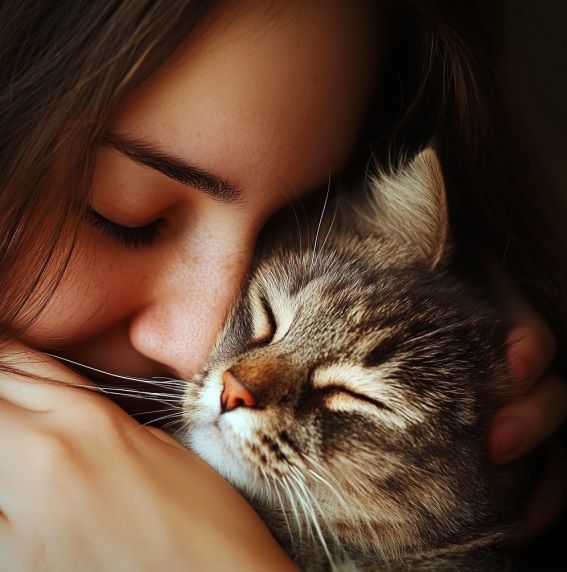Why Can’t Dogs and Cats Live as Long as Humans?
Why Can’t Dogs and Cats Live as Long as Humans?
How to Measure Your Pet’s Age in People Terms
In a perfect world, our animal companions would live forever – or at least as long as us. Unfortunately, being a pet parent often means saying goodbye a lot sooner than you’d like. Most of us will share our lifetimes with multiple pets, watching them grow up, grow old, and eventually depart. But why does it have to be that way? What makes dogs and cats live shorter lives than their human friends?
Many factors influence lifespan in the animal kingdom. Size, metabolic rate, growth hormones, oxidative stress, and evolutionary pressures all play a role. Scientists are still working out the details of why some animals live longer than others. One thing we do know: Animals that grow faster, age faster. So, in general terms, people live longer than dogs because puppies grow up faster than babies.
How to Calculate Age in Dog Years
Prevailing wisdom used to be that one year is equal to seven “dog years.” That’s not entirely accurate, though, because a one-year-old dog is significantly more grown-up than a seven-year-old person.
A more accurate formula for estimating a dog’s age is:
- A 1-year-old dog is equivalent to a 15-year-old human
- A 2-year-old dog is equivalent to a 24-year-old human
- After that, each year is equal to about five “dog years”
By this estimation, a 10-year-old dog is 64 years old in human terms.
Even this estimate is very rough, though, and doesn’t account for the differences between breeds. Small breeds like Chihuahuas and Toy Poodles routinely live well into their teens. Giant breeds like Great Danes and Mastiffs reach their golden years around 7-8 years old. A 10-year-old Great Pyrenees is much older than a Dachshund the same age. If you’re trying to gauge your pet’s age, you’ll want to take their breed into consideration. For mixed breeds or dogs of unknown heritage, you can estimate based on size.
What About Cats?
Cats tend to have similar lifespans to small dogs. This means the average cat’s lifespan is longer than the average dog’s. Bearing that in mind, the formula mentioned above will still work pretty well for measuring “cat years.”
The world record-holder for longest-lived feline belongs to Crème Puff, a domestic shorthair who lived to a ripe old age of 38 years. Most indoor cats live between 12 to 18 years. Feral cats and those that spend a lot of time outside have dramatically shorter lifespans.
How to Help Your Pet Live Longer
Aging is inevitable, but there are a few things you can do that will help your pet to live a longer, healthier life:
- Keep them at a healthy weight. Limit treats and between-meal snacks, and feed them high-quality food.
- Provide plenty of exercise and mental stimulation. Active pets are healthier and happier.
- Spay or neuter them. This reduces or eliminates the risk of many reproductive health problems and can also lower their stress levels.
- Give good dental care. Tooth decay can put a lot of stress on an animal’s body. Arrange for routine dental cleanings at your vet’s office, and brush your pet’s teeth at home if you’re able.
- Schedule regular check-ups. Don’t wait until something is wrong to take your pet to the vet. Staying up-to-date on shots and having bloodwork done as necessary will help maintain your pet’s health.
You can talk with your veterinarian about more recommendations for your specific pet’s needs. They’ll have the best idea of your pet’s overall level of health and can help you identify signs of aging and slowing down.
Of course, one day, it will be time to say goodbye. When that time comes, Best Friends Pet Passings and Cremations will be here to help – and offer a shoulder to cry on, any time.
Whether you have general pet cremation questions or are planning for an imminent loss, you can call us at (505) 345-5615 to speak to a member of our staff, or you can
reach out online to chat in whatever way is most comfortable for you.













